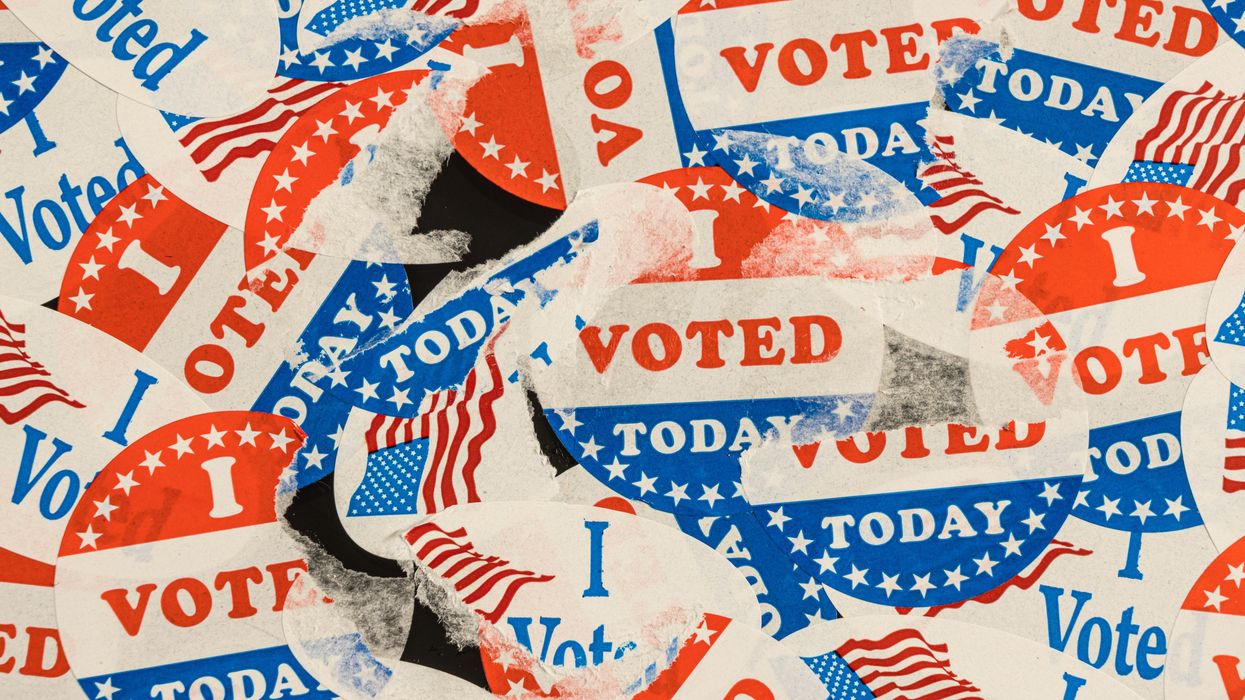Proctor, a Navy veteran, is a volunteer with Veterans for All Voters.
Imagine this: A general election with no negative campaigning and four or five viable candidates (regardless of party affiliation) competing based on their own personal ideas and actions — not simply their level of obstruction or how well they demonize their opponents. In this reformed election process, the candidate with the best ideas and the broadest appeal will win. The result: The exhausted majority will finally be well-represented again.
What is the “exhausted majority,” you ask? Are you tired of our toxic, two-party political system? Are you a member of one of our two major parties who no longer feels well-represented? Or, like me, are you an independent/unaffiliated, politically homeless voter? If you answered “yes” to any of these questions, welcome to the exhausted majority!
Yes, I’m exhausted by modern American politics. Most of the time, it feels like a middle school shouting match. With all the fear, outrage and division that’s being sold to us every day, sometimes the easiest thing to do is to turn off the TV and social media completely. Many people have done this and might be enjoying a higher quality of life.
Here’s the problem: Many of these exhausted, reasonable Americans are exactly the voices we need to hear the most in our dangerously divided public arena. But what can be done? Will things ever get any better, or are we entering the final phase of what one well-respected political author has called “ The Two-Party Doom Loop ”?
As a proud Navy veteran, I’m choosing to channel my frustration with our dysfunctional system into wise action. I’m pushing past my personal exhaustion to answer the call of duty, one more time, by joining Veterans for All Voters and supporting its noble and urgent mission of making our system less toxic and more competitive by mobilizing veterans (and their supporters) to advocate for the most powerful election innovations.
Through election innovations such as open, nonpartisan primary elections where ranked-choice voting is used to select a winner in the general election, we can forge a more competitive American democracy where everyday citizens are incentivized and excited to participate. Don’t you think it is unfair that 44 percent of registered voters in Connecticut, my home state, are not allowed to participate in taxpayer funded primaries? That results in 44 percent of Connecticut voters having zero input as to which candidates are on the November general ballot. That can’t be true representative democracy.
Veterans for All Voters believes that the best way to make our government, and our leaders, more accountable is through better, more competitive elections. In 2020, only 8 percent of eligible voters elected over 80 percent of our Congress. This is our "Primary Problem" and the primary reason why Congress is so ineffective and unaccountable. Our antiquated and unnecessarily partisan primary election system has led to many other systemic failures, from partisan gridlock to something even worse — actually rewarding toxic and divisive behavior.
Why, you ask, would anyone be excited to participate in our political process? Because, once we adopt these powerful election innovations we will no longer be stuck with the “lesser of two evil” choices in November. Under these new election systems, like the version already adopted by Alaska, we will have four or five viable candidates to choose from in each general election.
We can create this new, healthier and more competitive American democracy together. Please join Veterans for All Voters today and take part in our fight for responsible government and accountable politicians through open and competitive elections.
Let’s work together to save our democratic republic. Duty is calling, once again.




















